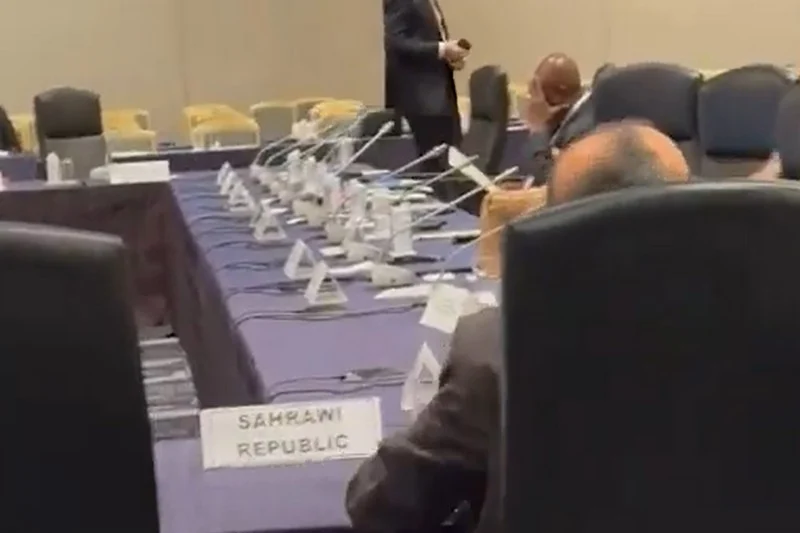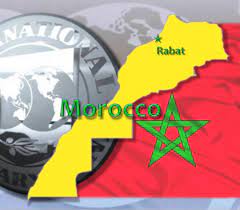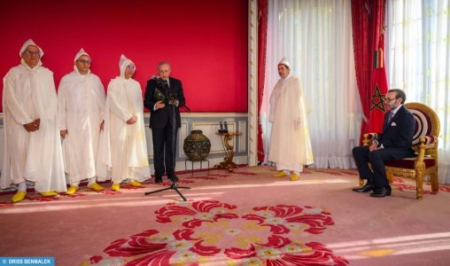The separatist Polisario Front caused uproar during the preparatory ministerial meeting for the 9th Tokyo International Conference on African Development (TICAD 9), scheduled for August 24-25, 2024, in Tokyo, after some of its members infiltrated the meeting despite not being invited.
Japan did not invite the so-called “SADR” or the Polisario, and the official list of participating countries does not include any mention of the fictitious entity. Besides, Japan did not issue visas to the so-called representatives of this entity and categorically refused to accept visa applications or their alleged travel documents.
However, the Polisario elements managed to enter Japanese territory using false identities and Algerian passports, posing as members of the Algerian delegation, the Algerian embassy having submitted verbal notes to the Japanese authorities requesting visas for these separatists as Algerians, just like the rest of the Algerian delegation.
Japan did not plan for the participation of the separatists when preparing the meeting rooms, the nameplates of participants were those of African countries duly invited by Japan and members of the United Nations, with no mention of the so-called “SADR.”
The separatists infiltrated the meeting room using Algerian badges and pretending to be members of the Algerian delegation. According to sources present at the meeting, and as shown by a video footage, one of the separatists secretly pulled out from his bag a nameplate bearing the name of the fictitious entity and placed it on the table.
This prompted a protest from the Moroccan delegation, which rejected this act and demanded the removal of the sign. The Japanese Foreign Ministry then intervened, affirming to those present that it had not extended any invitation to the Polisario to participate in the meeting and that it only invites states recognized by the UN.
The senior Japanese official chairing the meeting affirmed clearly and formally that his country does not recognize the so-called “SADR.”
The incident is widely considered a breach of protocol, particularly in light of Japan’s clear stance on the issue. The Japanese government, which is hosting TICAD IX in collaboration with the United Nations Development Programme (UNDP) and the World Bank, does not recognize the SADR.
Japan’s position mirrors that of the United Nations, European countries, and all permanent members of the United Nations Security Council, none of whom recognize the SADR as a legitimate state.
This infiltration again demonstrates, if need be, that Algeria is the sponsor and creator of the Polisario and that Algeria, which created and maintains the regional conflict over the Moroccan Sahara, is the main party, as recognized by the UN Security Council.
This deceitful new action on the part of Algeria and its puppet was relayed by Algerian media outlets in an attempt to circumvent the recent decision made by the African Union to prevent non-UN member states from participating in international meetings and summits involving the pan-African organization with its international partners such as Japan, Russia, and Korea.
The AU Executive Council decided to exclude the Polisario from participating in the international meetings gathering African countries and superpowers after some major international meetings, which were intended to bring in major investment to the African continent, were derailed into chaos and sparked a diplomatic crisis over the participation of a non-state entity which is becoming persona non-grata worldwide.
The Tokyo incident recalls one of the most prominent episodes of forgery practiced by the Polisario, following its leader’s entry into Spanish territory with forged identity documents in 2021, which at the time sparked a diplomatic crisis between Rabat and Madrid, eventually leading the Spanish government to express clearly its support for the autonomy plan in the Sahara as the only solution to the regional dispute.
The incident also highlights the “photo diplomacy” mastered by the enemies of the Kingdom’s territorial integrity and their repeated attempts to obscure the truth from the Sahrawis in the Tindouf camps and to convince them that the separatist project in the Sahara still resonates on the regional and international scene, as well as to cover up the diplomatic and military failures accumulated by the Polisario leadership.



